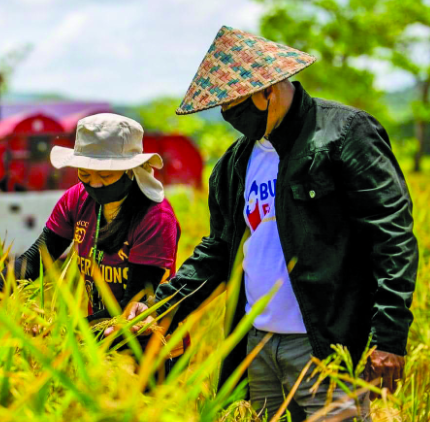USAID facilitates $244 million in agricultural investments for over 18,000 Nigerian SMEs
- The momentous initiative lent its support to over 18,000 MSMEs across seven Nigerian states.
- One achievement of this initiative was the mobilisation of over 188 billion Naira, equivalent to $244 million, in agricultural investments.
- As a result of the collaboration, Nigerian SMEs are now poised for expansion, with an emphasis on food production.
In a notable milestone, the United States Agency for International Development (USAID) celebrated the successful conclusion of the “Feed the Future Nigeria Agribusiness Investment activity” on October 10.
With a budget of $15.7 million, this five-year initiative left a significant mark on Nigeria’s agricultural landscape.
The momentous initiative lent its support to over 18,000 micro, small, and medium enterprises (MSMEs) across seven Nigerian states, namely Benue, Cross River, Delta, Ebonyi, Kaduna, Kebbi, and Niger. These small businesses, often the lifeblood of local economies, received a substantial boost to their operations.
One of the standout achievements of this initiative was the mobilisation of over 188 billion Naira, equivalent to $244 million, in agricultural investments—this capital injection empowered MSMEs, granting them greater access to financial resources.
As a result of the Agribusiness Investment activity, MSMEs are now poised for expansion, with an emphasis on food production. Key agricultural sectors such as aquaculture, cowpea, maize, rice, and soybean have all experienced growth.
Agriculture plays a pivotal role in Nigeria’s economy, employing approximately 35 per cent of the country’s workforce. However, it faces hurdles, including high operational costs, limited access to financial resources and investment, and regulatory complexities.
The success of this initiative is attributed to the collaborative efforts of USAID, the Nigerian government, federal and state ministries of agriculture and food security, and the private sector. Together, they worked to enhance agricultural productivity, expand market opportunities, improve nutrition, and streamline access to financial resources.
Michelle Corzine, Director of the USAID/Nigeria Economic Growth and Environment Office, emphasised the importance of continued collaboration between the public and private sectors. Her call to action underscores the vital role of cooperation in creating a conducive business environment for Nigerian farmers.
The formal closeout of the program was attended by over 150 individuals, including Dr. Ernest Afolabi Umakhihe, Permanent Secretary at the Federal Ministry of Agriculture and Food Security, along with representatives from USAID and key stakeholders in the public and private sectors.
This article was originally published by: Business Insider Africa

